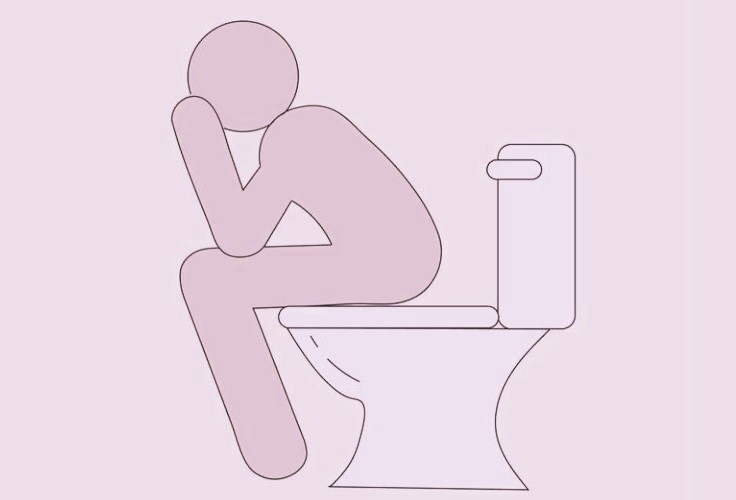In Diarrhoea, fluid-filled or loose unformed stools are frequently passed. In general, loose or watery stools three or four times a day can be considered diarrhoea.
There are two types of diseases: acute and chronic. There is no doubt that loose motion is one of the most common diseases in Asia. Diet and liquid secretions from the stomach, liver, pancreas, and intestines provide more than 10 liters of liquid per day for the intestines.
Diarrhoea occurs when the body’s organs fail to absorb water or secrete it in excess. Once in the colon, water can only be retained for a short period of time. Therefore, it is quite common to feel the urge to defecate.
Causes
Diarrhea can be caused by a variety of factors. A number of factors cause this disease, including excessive eating or eating the wrong foods, putrefaction in the intestinal tract, fermentation caused by incomplete carbohydrate digestion, nervous irritability, use of antibiotics, and excessive use of laxatives.
It can also be caused by parasites, germs, viruses, bacteria, or poisons that enter the body through food, water, or air; allergies to certain substances or even common foods like milk, wheat, eggs, and sea foods; emotional stress or strain in adults; fright in children. There are many organic diseases affecting the small and large intestines that can result in diarrhea, such as sprue syndrome, malignant disease, and ulcerative colitis.
The condition may also result from gastrointestinal surgery. Constipation may alternate with diarrhea. This may be caused by impacted hard feces irritating the mucous membrane. There are certain complications associated with prolonged diarrhea.
Some of these include:
-
Weakening is caused by nutrient loss during the rushing through of food without giving it a chance to be absorbed.
-
Dehydration, due to loss of body fluids and washing out of minerals from the body and nervous conditions.
Treatment
To provide rest for the gastrointestinal tract in cases of severe diarrhoea, it is advisable to observe a complete fast for two days. In order to compensate for fluid loss, only hot water should be consumed during the period. After acute symptoms have passed, juices from fruits can be taken. Eventually, cooked vegetables, whole rice, and poured milk can be added to the meal as the condition improves.
After the patient has fully recovered, raw foods should be consumed. Diarrhoea can be effectively treated with buttermilk. After churning yogurt, the residual milk is left over after the fat is removed. Re-establishing beneficial or friendly intestinal flora helps overcome harmful flora. Buttermilk also fights germs and bacteria with its acid. Diarrhoea may be controlled by taking it with a pinch of salt three or four times a day.
Carrot soup is another effective home remedy for diarrhoea. It supplies water to combat dehydration, replenishes sodium, potassium, phosphorus, calcium, sulfur, and magnesium, supplies pectin, and coats the intestine to allay inflammation. It checks the growth of harmful intestinal bacteria and prevents vomiting. One pound of carrot may be cooked in five ounces of water until it is soft. The pulp should be strained and boiled water added to make a quart.
Mix three-quarters of a tablespoon of salt. Approximately half an hour after receiving this soup, the patient should receive small amounts of it. Astringent properties of the pomegranate have been found to be effective in treating diarrhoea. The patient should be repeatedly given about 50 ml if he becomes weak from excessive and continuous purging of pomegranate juice to drink. Diarrhea will be controlled by this method. It is also beneficial to eat mango seeds if you have diarrhea. It is recommended to collect the seeds during the mango season, dry them in the shade, powder them, and store them for use as medicine whenever needed.
A dose of one and a half grams to two grams should be taken with or without honey. Diarrhoea can also be treated effectively with turmeric. It is an excellent intestinal antiseptic. As a gastric stimulant and tonic, it is also beneficial. Curing chronic diarrhea with turmeric rhizome, turmeric juice, or turmeric powder is very effective. You may take it in buttermilk or plain water if it is a dry powder.
Whether it is dry or fresh ginger, it is very helpful in treating diarrhoea caused by indigestion. Ginger and crystal salt are powdered together. With a small piece of jugglery, take a quarter teaspoonful of this powder. By stimulating the gastrointestinal tract, ginger, being carminative, will bring immediate relief.
Diarrhoea can be treated with starchy liquids such as arrowroot water, barley water, rice gruel, and coconut water. As well as replacing fluid lost, they also bind the stools. Bananas and garlic are also effective home remedies. Fruits such as bananas contain pectin, which promotes the growth of beneficial bacteria.
There is no doubt that garlic is an effective, safe, and powerful antibiotic. Digestion is aided and parasites are routine. Keeping the abdominal compress warm (at 60 o F) and taking a cold hip bath (40 o – 50 o F) every 15 to 20 minutes are the best water treatments for diarrhoea. Every two hours, abdominal fomentations should be administered to the patient if he or she is experiencing pain.







